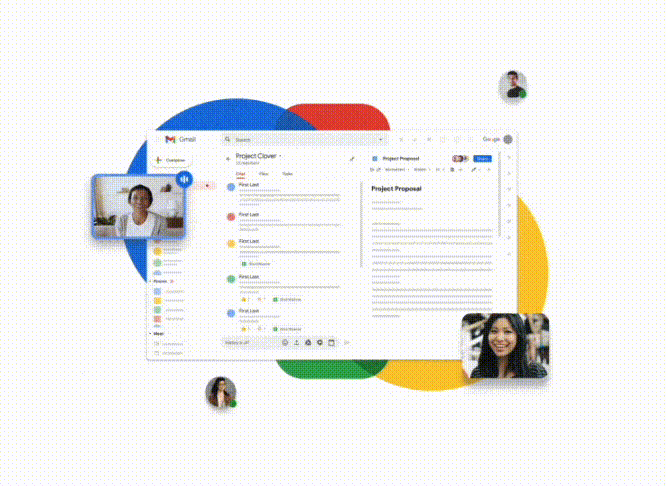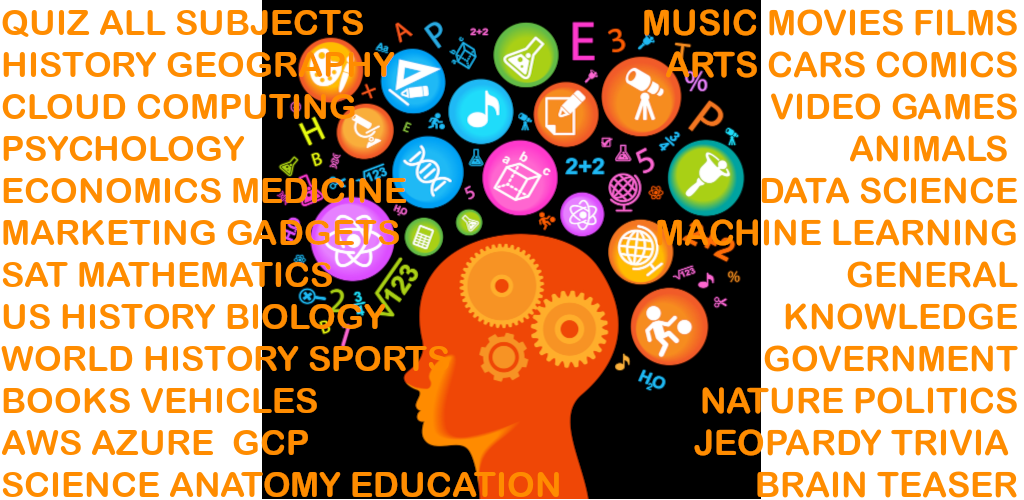AI Dashboard is available on the Web, Apple, Google, and Microsoft, PRO version
Why is there a lack of diversity among software engineers in tech companies in USA and Canada?
One of the most significant problems facing the tech industry is a lack of diversity among software engineers. In the United States and Canada, women and visible minorities are grossly underrepresented in the field. This problem is often attributed to the pipelines that feed into the industry. For example, women are less likely than men to study computer science in college. However, this does not fully explain the disparity. Hiring practices at tech companies are also to blame. Studies have shown that companies are biased against female and minority candidates. They are more likely to hire white men with similar educational backgrounds and work experience. This lack of diversity has negative consequences for both the individuals affected and the companies themselves. Immersive technologies, such as virtual reality, are being designed and developed primarily by white men. This creates a product that does not reflect the needs or perspectives of a diverse population. In addition, companies with diverse teams have been shown to perform better than those without diversity. They are more innovative and adaptable to change. The lack of diversity among software engineers is a problem that needs to be addressed by both educators and tech companies if the industry is to thrive in the future.

A prominent Engineer from Silicon Valley said this about the topic: Women and minorities are systematically discouraged from taking STEM subjects starting around the third grade. Fewer of them excel in math and science in high school. Fewer go to college. Women and minorities don’t see women and minorities in tech roles in the media. Some hiring managers are racist, misogynist scumbags. Some co-workers are dismissive of them. They have trouble finding mentors. The women, at least, are encouraged continuously to drop out and make fat babies.
This all forms a pretty effective filter. By Kurt Guntheroth.
Find Local and Remote Real Time Jobs at https://inRealtimeJobs.com
Software industry has mostly adopted and promoted conformist culture, thanks to its leaders who mostly have been power mongers and Machiavellian by approach, with few exceptions here and there in few organizations. Conforming culture will inherently repel diversity since one is more assured of conforming staff in a known culture rather than more diverse culture. Most of these so called pseudo leaders don’t really seek diverse ideas which inherently stem from diverse cultures. And so such organizations never end up becoming diverse.
Get 20% off Google Google Workspace (Google Meet) Standard Plan with the following codes: 96DRHDRA9J7GTN6
 Get 20% off Google Workspace (Google Meet) Business Plan (AMERICAS): M9HNXHX3WC9H7YE (Email us for more codes)
Get 20% off Google Workspace (Google Meet) Business Plan (AMERICAS): M9HNXHX3WC9H7YE (Email us for more codes)
Active Anti-Aging Eye Gel, Reduces Dark Circles, Puffy Eyes, Crow's Feet and Fine Lines & Wrinkles, Packed with Hyaluronic Acid & Age Defying Botanicals

There aren’t enough women in the industry — in individual contributor roles and in leadership roles. There also aren’t enough African-Americans and Latinos.
Why does this matter? Many reasons. One big one is that exclusion leads to more exclusion. When one gender/ethnic group is significantly underrepresented in a workforce, strong biases bake in -> the people in the affected group think they don’t belong at the compan(ies) and the people at the companies have an insular bias to pick people from their networks/people who share their backgrounds.
Silicon Valley is the hottest growth sector in the US and will continue to create the best career and wealth opportunities over the next 20–30 years. It’s really not good that the industry isn’t absorbing more women, African-Americans, and Latinos.
To conclude:
Technology is a rapidly growing industry with a huge demand for qualified software engineers. However, there is a lack of diversity among software engineers in tech companies in the USA and Canada. Women and minorities are greatly underrepresented in the field of software engineering. This is due to several factors, including the misogynistic and racist culture of many tech companies. The lack of diversity among software engineers has a negative impact on the quality of products and services offered by tech companies. It also limits the ability of these companies to innovate and serve a wide range of customers. In order to increase diversity among software engineers, tech companies need to change their hiring practices and create an inclusive environment that values all types of people.
Find local and Remote Real Time Jobs at https://inRealtimeJobs.com
Examining the Fragmented Data on Black Entrepreneurship in North America
Financing Black Businesses in Canada and USA: Challenges and Opportunities
Active Hydrating Toner, Anti-Aging Replenishing Advanced Face Moisturizer, with Vitamins A, C, E & Natural Botanicals to Promote Skin Balance & Collagen Production, 6.7 Fl Oz


Age Defying 0.3% Retinol Serum, Anti-Aging Dark Spot Remover for Face, Fine Lines & Wrinkle Pore Minimizer, with Vitamin E & Natural Botanicals


Firming Moisturizer, Advanced Hydrating Facial Replenishing Cream, with Hyaluronic Acid, Resveratrol & Natural Botanicals to Restore Skin's Strength, Radiance, and Resilience, 1.75 Oz

Skin Stem Cell Serum


Smartphone 101 - Pick a smartphone for me - android or iOS - Apple iPhone or Samsung Galaxy or Huawei or Xaomi or Google Pixel
Can AI Really Predict Lottery Results? We Asked an Expert.

Djamgatech

Read Photos and PDFs Aloud for me iOS
Read Photos and PDFs Aloud for me android
Read Photos and PDFs Aloud For me Windows 10/11
Read Photos and PDFs Aloud For Amazon
Get 20% off Google Workspace (Google Meet) Business Plan (AMERICAS): M9HNXHX3WC9H7YE (Email us for more)
Get 20% off Google Google Workspace (Google Meet) Standard Plan with the following codes: 96DRHDRA9J7GTN6(Email us for more)
FREE 10000+ Quiz Trivia and and Brain Teasers for All Topics including Cloud Computing, General Knowledge, History, Television, Music, Art, Science, Movies, Films, US History, Soccer Football, World Cup, Data Science, Machine Learning, Geography, etc....

List of Freely available programming books - What is the single most influential book every Programmers should read
- Bjarne Stroustrup - The C++ Programming Language
- Brian W. Kernighan, Rob Pike - The Practice of Programming
- Donald Knuth - The Art of Computer Programming
- Ellen Ullman - Close to the Machine
- Ellis Horowitz - Fundamentals of Computer Algorithms
- Eric Raymond - The Art of Unix Programming
- Gerald M. Weinberg - The Psychology of Computer Programming
- James Gosling - The Java Programming Language
- Joel Spolsky - The Best Software Writing I
- Keith Curtis - After the Software Wars
- Richard M. Stallman - Free Software, Free Society
- Richard P. Gabriel - Patterns of Software
- Richard P. Gabriel - Innovation Happens Elsewhere
- Code Complete (2nd edition) by Steve McConnell
- The Pragmatic Programmer
- Structure and Interpretation of Computer Programs
- The C Programming Language by Kernighan and Ritchie
- Introduction to Algorithms by Cormen, Leiserson, Rivest & Stein
- Design Patterns by the Gang of Four
- Refactoring: Improving the Design of Existing Code
- The Mythical Man Month
- The Art of Computer Programming by Donald Knuth
- Compilers: Principles, Techniques and Tools by Alfred V. Aho, Ravi Sethi and Jeffrey D. Ullman
- Gödel, Escher, Bach by Douglas Hofstadter
- Clean Code: A Handbook of Agile Software Craftsmanship by Robert C. Martin
- Effective C++
- More Effective C++
- CODE by Charles Petzold
- Programming Pearls by Jon Bentley
- Working Effectively with Legacy Code by Michael C. Feathers
- Peopleware by Demarco and Lister
- Coders at Work by Peter Seibel
- Surely You're Joking, Mr. Feynman!
- Effective Java 2nd edition
- Patterns of Enterprise Application Architecture by Martin Fowler
- The Little Schemer
- The Seasoned Schemer
- Why's (Poignant) Guide to Ruby
- The Inmates Are Running The Asylum: Why High Tech Products Drive Us Crazy and How to Restore the Sanity
- The Art of Unix Programming
- Test-Driven Development: By Example by Kent Beck
- Practices of an Agile Developer
- Don't Make Me Think
- Agile Software Development, Principles, Patterns, and Practices by Robert C. Martin
- Domain Driven Designs by Eric Evans
- The Design of Everyday Things by Donald Norman
- Modern C++ Design by Andrei Alexandrescu
- Best Software Writing I by Joel Spolsky
- The Practice of Programming by Kernighan and Pike
- Pragmatic Thinking and Learning: Refactor Your Wetware by Andy Hunt
- Software Estimation: Demystifying the Black Art by Steve McConnel
- The Passionate Programmer (My Job Went To India) by Chad Fowler
- Hackers: Heroes of the Computer Revolution
- Algorithms + Data Structures = Programs
- Writing Solid Code
- JavaScript - The Good Parts
- Getting Real by 37 Signals
- Foundations of Programming by Karl Seguin
- Computer Graphics: Principles and Practice in C (2nd Edition)
- Thinking in Java by Bruce Eckel
- The Elements of Computing Systems
- Refactoring to Patterns by Joshua Kerievsky
- Modern Operating Systems by Andrew S. Tanenbaum
- The Annotated Turing
- Things That Make Us Smart by Donald Norman
- The Timeless Way of Building by Christopher Alexander
- The Deadline: A Novel About Project Management by Tom DeMarco
- The C++ Programming Language (3rd edition) by Stroustrup
- Patterns of Enterprise Application Architecture
- Computer Systems - A Programmer's Perspective
- Agile Principles, Patterns, and Practices in C# by Robert C. Martin
- Growing Object-Oriented Software, Guided by Tests
- Framework Design Guidelines by Brad Abrams
- Object Thinking by Dr. David West
- Advanced Programming in the UNIX Environment by W. Richard Stevens
- Hackers and Painters: Big Ideas from the Computer Age
- The Soul of a New Machine by Tracy Kidder
- CLR via C# by Jeffrey Richter
- The Timeless Way of Building by Christopher Alexander
- Design Patterns in C# by Steve Metsker
- Alice in Wonderland by Lewis Carol
- Zen and the Art of Motorcycle Maintenance by Robert M. Pirsig
- About Face - The Essentials of Interaction Design
- Here Comes Everybody: The Power of Organizing Without Organizations by Clay Shirky
- The Tao of Programming
- Computational Beauty of Nature
- Writing Solid Code by Steve Maguire
- Philip and Alex's Guide to Web Publishing
- Object-Oriented Analysis and Design with Applications by Grady Booch
- Effective Java by Joshua Bloch
- Computability by N. J. Cutland
- Masterminds of Programming
- The Tao Te Ching
- The Productive Programmer
- The Art of Deception by Kevin Mitnick
- The Career Programmer: Guerilla Tactics for an Imperfect World by Christopher Duncan
- Paradigms of Artificial Intelligence Programming: Case studies in Common Lisp
- Masters of Doom
- Pragmatic Unit Testing in C# with NUnit by Andy Hunt and Dave Thomas with Matt Hargett
- How To Solve It by George Polya
- The Alchemist by Paulo Coelho
- Smalltalk-80: The Language and its Implementation
- Writing Secure Code (2nd Edition) by Michael Howard
- Introduction to Functional Programming by Philip Wadler and Richard Bird
- No Bugs! by David Thielen
- Rework by Jason Freid and DHH
- JUnit in Action
#BlackOwned #BlackEntrepreneurs #BlackBuniness #AWSCertified #AWSCloudPractitioner #AWSCertification #AWSCLFC02 #CloudComputing #AWSStudyGuide #AWSTraining #AWSCareer #AWSExamPrep #AWSCommunity #AWSEducation #AWSBasics #AWSCertified #AWSMachineLearning #AWSCertification #AWSSpecialty #MachineLearning #AWSStudyGuide #CloudComputing #DataScience #AWSCertified #AWSSolutionsArchitect #AWSArchitectAssociate #AWSCertification #AWSStudyGuide #CloudComputing #AWSArchitecture #AWSTraining #AWSCareer #AWSExamPrep #AWSCommunity #AWSEducation #AzureFundamentals #AZ900 #MicrosoftAzure #ITCertification #CertificationPrep #StudyMaterials #TechLearning #MicrosoftCertified #AzureCertification #TechBooks
Top 1000 Canada Quiz and trivia: CANADA CITIZENSHIP TEST- HISTORY - GEOGRAPHY - GOVERNMENT- CULTURE - PEOPLE - LANGUAGES - TRAVEL - WILDLIFE - HOCKEY - TOURISM - SCENERIES - ARTS - DATA VISUALIZATION

Top 1000 Africa Quiz and trivia: HISTORY - GEOGRAPHY - WILDLIFE - CULTURE - PEOPLE - LANGUAGES - TRAVEL - TOURISM - SCENERIES - ARTS - DATA VISUALIZATION

Exploring the Pros and Cons of Visiting All Provinces and Territories in Canada.

Exploring the Advantages and Disadvantages of Visiting All 50 States in the USA

Health Health, a science-based community to discuss health news and the coronavirus (COVID-19) pandemic
- Experimental ovarian cryopreservation could delay menopause, but experts are weighing the risksby /u/scientificamerican on April 22, 2024 at 1:50 pm
submitted by /u/scientificamerican [link] [comments]
- Man who spent 13 years in a coma woke up to tell incredible storyby /u/Maxcactus on April 22, 2024 at 10:54 am
submitted by /u/Maxcactus [link] [comments]
- Toxic: How the search for the origins of COVID-19 turned politically poisonousby /u/zsreport on April 22, 2024 at 10:29 am
submitted by /u/zsreport [link] [comments]
- A cheap drug may slow down aging. A study will determine if it worksby /u/Maxcactus on April 22, 2024 at 10:12 am
submitted by /u/Maxcactus [link] [comments]
- How the way you walk can tell you how well you’ll sleep tonightby /u/EmphasisCheap8611 on April 22, 2024 at 9:54 am
submitted by /u/EmphasisCheap8611 [link] [comments]
Today I Learned (TIL) You learn something new every day; what did you learn today? Submit interesting and specific facts about something that you just found out here.
- TIL Brazil turned Pelé into a national treasure to stop him from leaving the country to play soccer in Europeby /u/Humblerequest_21 on April 22, 2024 at 2:13 pm
submitted by /u/Humblerequest_21 [link] [comments]
- TIL In 2014, a 15-year-old teenager injected himself with mercury, hoping to gain superpowers like the X-Men. He mimicked Wolverine's transformation, but it ended in disaster. He nearly lost his life and realized superpowers are just fiction.by /u/y442_Ficul1983 on April 22, 2024 at 2:10 pm
submitted by /u/y442_Ficul1983 [link] [comments]
- TIL there's an annual lying contest in England called "The World's Biggest Liar." Held in Cumbria, contestants vie to tell the most convincing lie within 5 minutes. Politicians and lawyers are barred from participating due to their reputed skill in deception.by /u/MelissaJonesenNc on April 22, 2024 at 1:31 pm
submitted by /u/MelissaJonesenNc [link] [comments]
- TIL In 1984 "Baby Fae" received a baboon heart transplant at just 11 days old and survived 21 days before rejecting it.by /u/andersonfmly on April 22, 2024 at 1:07 pm
submitted by /u/andersonfmly [link] [comments]
- TIL that a version of the Golden Rule can be found on ancient Egyptian papyrus from the Egyptian late period, which states "That which you hate to be done to you, do not do to another."by /u/Desperate_Dirt_3041 on April 22, 2024 at 1:05 pm
submitted by /u/Desperate_Dirt_3041 [link] [comments]
Reddit Science This community is a place to share and discuss new scientific research. Read about the latest advances in astronomy, biology, medicine, physics, social science, and more. Find and submit new publications and popular science coverage of current research.
- Block-based Programming for Two-Armed Robots: A Comparative Studyby /u/davidshepherd on April 22, 2024 at 3:36 pm
submitted by /u/davidshepherd [link] [comments]
- Pluto’s heart-shaped Sputnik Planitia basin might not hide an ocean after allby /u/Science_News on April 22, 2024 at 3:25 pm
submitted by /u/Science_News [link] [comments]
- The Neolithic revolution, the wide-scale transition to agriculture among at least seven unconnected hunter-gatherer populations, was enabled by climactic changes. Increased climatic seasonality caused hunter-gatherers to adopt a sedentary lifestyle and store food for the season of scarcity.by /u/smurfyjenkins on April 22, 2024 at 2:40 pm
submitted by /u/smurfyjenkins [link] [comments]
- As adults get older, they shift their perception of when old age starts. This according to a survey on 14,056 middle-aged and older adults who responses to the question: “At what age would you describe someone as old” for 8 times over a 25Y periodby /u/giuliomagnifico on April 22, 2024 at 2:25 pm
submitted by /u/giuliomagnifico [link] [comments]
- A study examining outcomes of a 2021 clinical trial that found psilocybin effectively treated major depressive disorder linked a stronger relationship between study participants & clinicians to lower depression scores 1 year later-pointing to the importance of the therapeutic alliance.by /u/memorialmonorail on April 22, 2024 at 2:17 pm
submitted by /u/memorialmonorail [link] [comments]
Reddit Sports Sports News and Highlights from the NFL, NBA, NHL, MLB, MLS, and leagues around the world.
- Jose Mourinho: How I changed football in 20 years - and why I'm not done yetby /u/kundu123 on April 22, 2024 at 3:20 pm
Between-jobs Jose has always been different to in-work Jose. Much less stressed, bursting with ideas and watching a lot of football on television. submitted by /u/kundu123 [link] [comments]
- A racial slur and a Fort Myers High baseball team torn apartby /u/PrincessBananas85 on April 22, 2024 at 2:38 pm
submitted by /u/PrincessBananas85 [link] [comments]
- Scottie Scheffler finishes off another win at Hilton Head to extend dominant runby /u/Oldtimer_2 on April 22, 2024 at 1:31 pm
submitted by /u/Oldtimer_2 [link] [comments]
- Fred Weis on Joel Embiid: “Take away his nationality and ban him from entering France”by /u/kundu123 on April 22, 2024 at 12:48 pm
As Weis said: “I consider this boy a great player as much as he is a dirty guy. I hate him for the things that he did. I think he doesn’t have any respect for France and also for all the people who are asking for a French passport and don’t get it. And under the pretext that he is a great athlete, he got it. I find it scandalous, I find it embarrassing. I don’t care about his excuses, cause they are his words, and his words mean nothing”. submitted by /u/kundu123 [link] [comments]
- Ethiopian distance runner and Olympic finalist Zerfe Wondemagegn banned 5 years for dopingby /u/Oldtimer_2 on April 22, 2024 at 12:09 pm
submitted by /u/Oldtimer_2 [link] [comments]


















 96DRHDRA9J7GTN6
96DRHDRA9J7GTN6